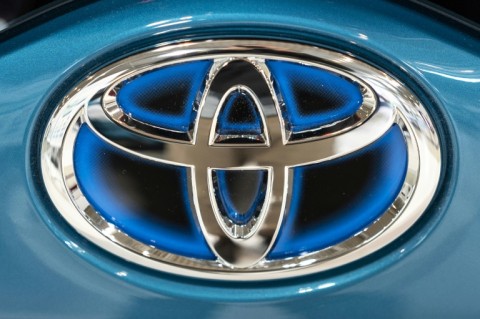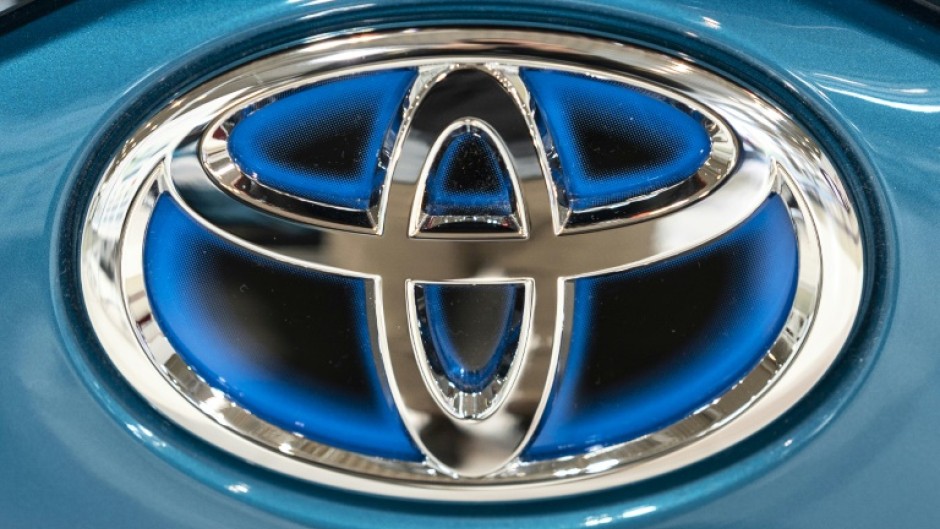
TOKYO - Top-selling automaker Toyota said Wednesday that its full-year net profit beat expectations and projected better sales and revenue for the year ahead as supply chain disruptions ease.
The Japanese firm reported 2.45 trillion yen ($18.12 billion) in net profit for the fiscal year, down 14 percent from a year earlier but still beating its projections of 2.36 trillion yen.
It said it expects full-year net profit to increase five percent for the year ahead to 2.58 trillion yen on "improvements in semiconductor supply and the efforts of production sites".
The auto titan retained its top-selling crown for the third year in a row in 2022, but like much of the industry has battled pandemic headwinds and the effects of a global chip shortage.
"In a word, it was a very tough year for us to produce and deliver vehicles to our customers," CEO Koji Sato told reporters.
The company cited everything from natural disasters to the chip crisis for production constraints over the last fiscal year and acknowledged "soaring materials prices" had weighed on the bottom line.
It said it managed to beat its forecast in part due to foreign exchange, but also thanks to the efforts of production sites and dealers, which helped increase year-on-year sales volume across all Toyota's regions.
Toyota sold more than 10.5 million cars worldwide in the last financial year, including those made by its subsidiaries like Hino Motors and Daihatsu, and is projecting a massive jump to 11.4 million for the fiscal year ahead.
"We expect growth in all regions," chief financial officer Yoichi Miyazaki said.
"For the immediate term, it is not all normal yet. But our ability to manage semiconductor (supply) has significantly improved."
The firm's stock price jumped on the earnings result, ending up 0.78 percent to 1,931.5 yen despite Tokyo shares overall ending the day lower.
- Electric push -
Increased production capacity suggests "the impact of semiconductor shortages is waning", Seiji Sugiura, senior analyst at Tokai Tokyo Research Institute, told AFP before the results were announced.
Toyota also benefits from having been "very strict" about building a system that is resilient to the impact of natural disasters like earthquakes, added Satoru Takada, an auto analyst at research and consulting firm TIW.
Sato said the company was boosting volume to "strengthen our resilience to volatile factors like foreign exchange rates and rising material costs".
This year Toyota unveiled a surprise shake-up of its leadership, replacing Akio Toyoda, whose grandfather founded the company, with 53-year-old Sato as CEO.
Sato has vowed to "accelerate" the development of battery-powered electric vehicles through a "new approach" including the invention of "next-generation" Lexus vehicles by 2026.
Toyota pioneered hybrid cars, but some critics say the company has been slow to make the shift to battery-powered engines, even as demand soars for low-emission automobiles.
The firm has set a target of boosting annual EV sales to 1.5 million units by 2026 -- a huge jump from just over 20,000 in 2022.
But the delayed focus on EVs by Toyota and other Japanese automakers has left them "unable to assert their presence at all" in the burgeoning market of China, said Takada.
China is one of the world's largest car markets, with about 30 million vehicles sold annually, and it is pivoting rapidly to EVs.
That means the question of how Japanese automakers including Toyota will "retake their competitive lead in China" is of "paramount importance", Takada said.
Sato said Wednesday that Toyota is committed to China's EV market, while insisting hybrid demand would remain strong.
Last month, Toyoda, now serving as chairman of Toyota's board, was forced to apologise after it emerged Daihatsu rigged crash tests for some of its cars.
The issue involved around 88,000 units largely destined for markets including Thailand, the Middle East and Malaysia.
Toyoda called the rigging "absolutely unacceptable" and promised a detailed investigation.

